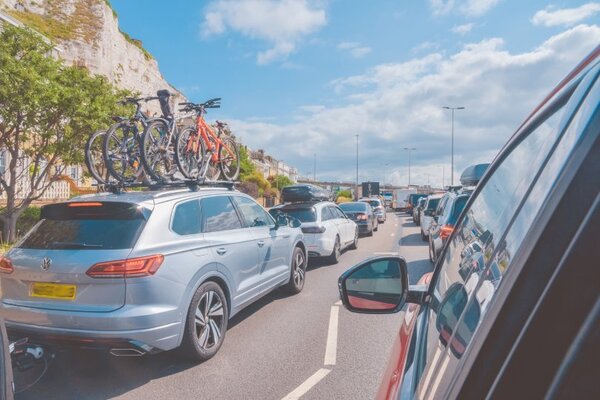UK 'may not be ready for new EU border rules by next summer' – Labour
 Ilaria Grasso Macola
Ilaria Grasso MacolaThe previous UK government didn’t do enough to get the country ready for the new EU border controls expected to take effect later this year, Labour has warned.
Immigration minister Seema Malhotra told the House of Commons on Monday (29 July) the new government was "not content" with the amount of preparation work done by the previous Conservative-led administration, echoing the findings of a House of Lords committee in May and subsequent findings from Iata earlier this month.
Malhotra said the government would embark on a "critical" public awareness push to get travellers ready for the changes. However, she stressed the transitional period could last more than six months, which would run into the start of the 2025 summer season. The UK, she said, is lobbying for a longer grace period.
Following years of delays, the EU Entry-Exit System (EES) is now due to take effect in November, which will replace passport stamping and require travellers crossing external EU borders to submit to biometric checks, which will be kept on file for three years.
It is feared implementation of the new system will increase processing times at UK-EU border crossing points such as London St Pancras International station for Eurostar and the Port of Dover for ferry services, although EES will no longer impact the summer season should it be rolled out in November.
Malhotra, parliamentary under-secretary of state at the Home Office, told the Commons: "Insufficient progress has been made on ensuring these impacts, as well as other potential impacts, are minimised, with disruption likely when the scheme is introduced.
“On these routes, work has been required to accommodate new equipment and infrastructure in ports and terminals in the UK ahead of the launch date, as well as minimising any disruption caused by queues at the border as much as possible.”
Keir Starmer’s government has already taken steps to mitigate any potential disruption later this year by pledging to work more closely with the French government and other stakeholders, such as Eurostar and Eurotunnel, on the both EU’s implementation plans and efforts on the UK side.
Malhotra said getting holidaymakers and travellers ready for the changes would be "critical", a process she said would involve a communications campaign to raise awareness among the travelling public – "especially UK nationals and third-country nationals resident in the UK".
"It is critical British citizens are aware of the new requirements and [are] prepared for the additional time these will take with sufficient time to plan ahead," Malhotra told MPs.
’Shared objectives’
Other efforts will include working with the European Commission and EU member states to lobby for relief measures, such as exempting passengers from having their finger prints and photo taken, to be extended for more than six months to smooth the transition.
"We believe extending these beyond six months would improve throughput at the EU’s external border if queues form during peak periods in early 2025 due to the additional processing time required for EES,” Malhotra continued.
The UK has also asked for an additional French control zone at Dover’s western docks which can be operated by French border control officers in the same way they currently do in the port’s eastern docks.
“It’s both in the UK’s and the European Union’s interest to work together on our shared objectives to ensure we maintain secure borders, while also minimising any disruption caused by the EES,” Malhotra added.
Sign up for weekday travel news and analysis straight to your inbox

Ilaria Grasso Macola
Supplier Directory
Find contacts for 260+ travel suppliers. Type name, company or destination.













